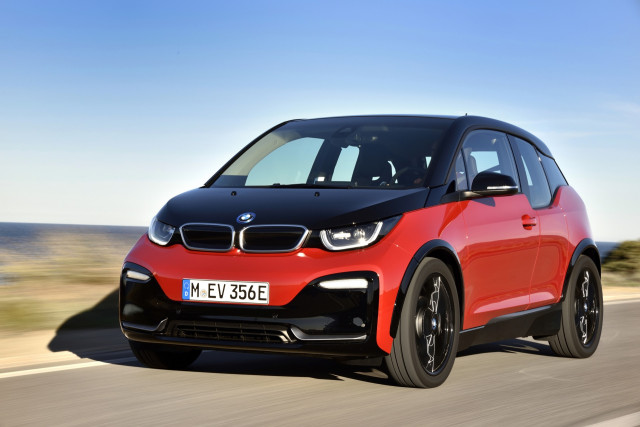
BMW i Vision Dynamics concept, 2017 Frankfurt Motor Show
Using new battery-pack architecture, BMW battery supplier Lion Smart has crammed triple the battery capacity into a BMW i3s.
Lion Smart's 100-kilowatt-hour battery gives the little city car a range of 435 miles on a charge, in the same footprint as the original battery pack.
Lion Smart has developed a modular battery-pack design that makes cooling more efficient and eliminates wiring inside the pack to reduce weight, size, and cost.

2018 BMW i3s
Within the same dimensions, a modular pack can be designed to produce 101 kwh at 400 volts, 98 kwh at 600 volts, or 106 kwh at 800 volts, depending on the sizes of the modules and how they're connected.
Lion Smart calls its modules supercells, which house cylindrical battery cells in a hexagonal arrangement. The company says the supercells can be adapted to any cylindrical cell format, including 18650s (used in Tesla Model Ses and Xes), or the latest 21700 design used in the Tesla Model 3. (Tesla refers to it as the 2170, or 21-70.)
Each cell has its own voltage and temperature sensor connected to and powered by that cell's poles.
A new cooling system uses a phase-changing coolant that converts from a liquid to gas if a cell overheats. That way it focuses cooling power on the individual problematic cell. Individual vents at each cell can bleed off the vapor.
Each cell also has its own fuse so that damaged or overheated cells can be clicked off-line individually without removing a whole module or dramatically reducing the capacity of the whole pack.
READ MORE: BMW reveals its self-driving, electric iNext vision for the future
Don't expect to see a 100-kwh battery pack in an i3 at a BMW dealership near you any time in the foreseeable future.
Lion Smart, though, says it has a contract with a customer to develop one of its modular packs for an upcoming product. The 435-mile range rating of the BMW i3 with the demo pack matches exactly the range BMW has quoted for its upcoming iNext electric sedan (based on its i Vision Dynamics concept car from 2017.) Coincidence? You decide.